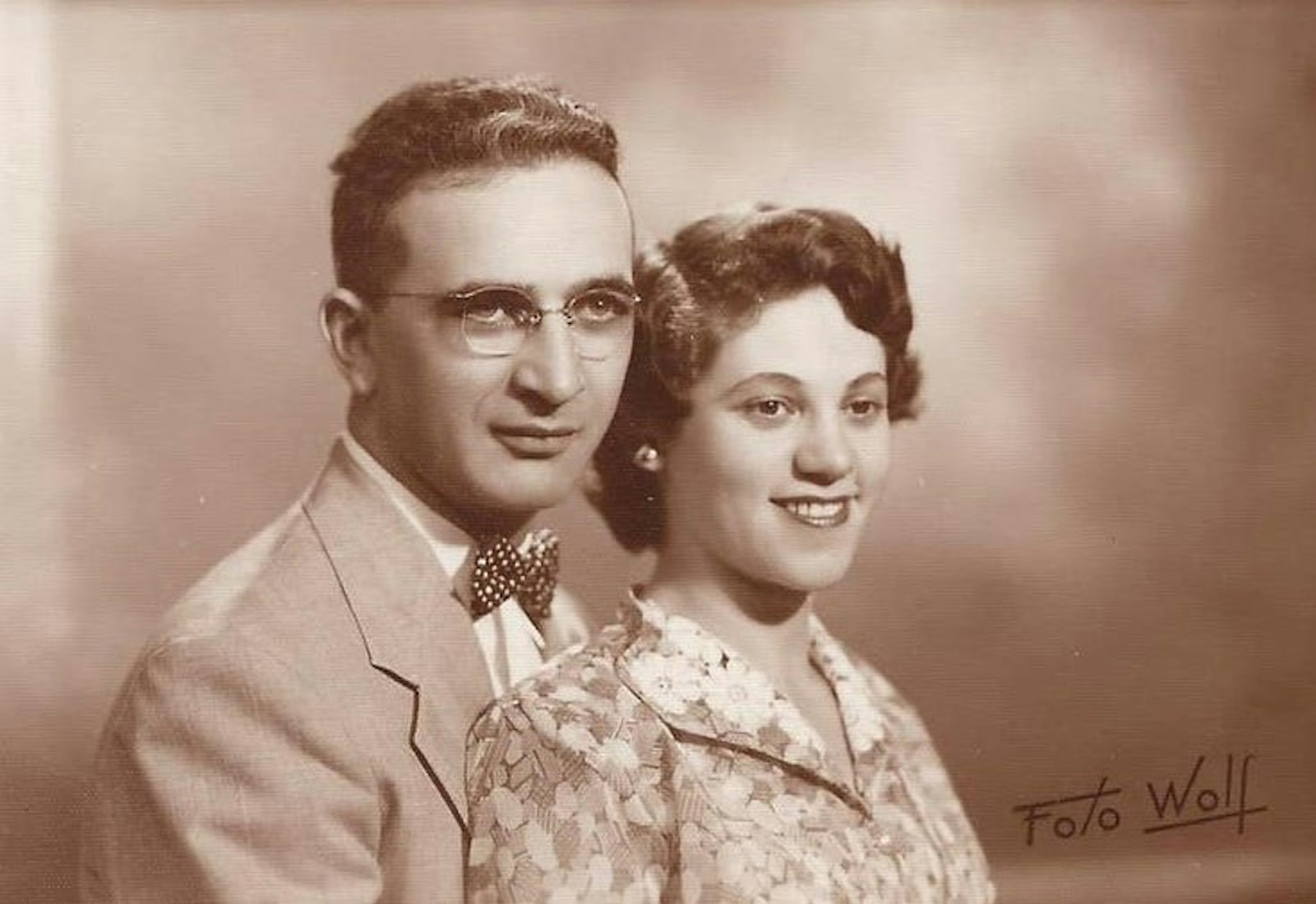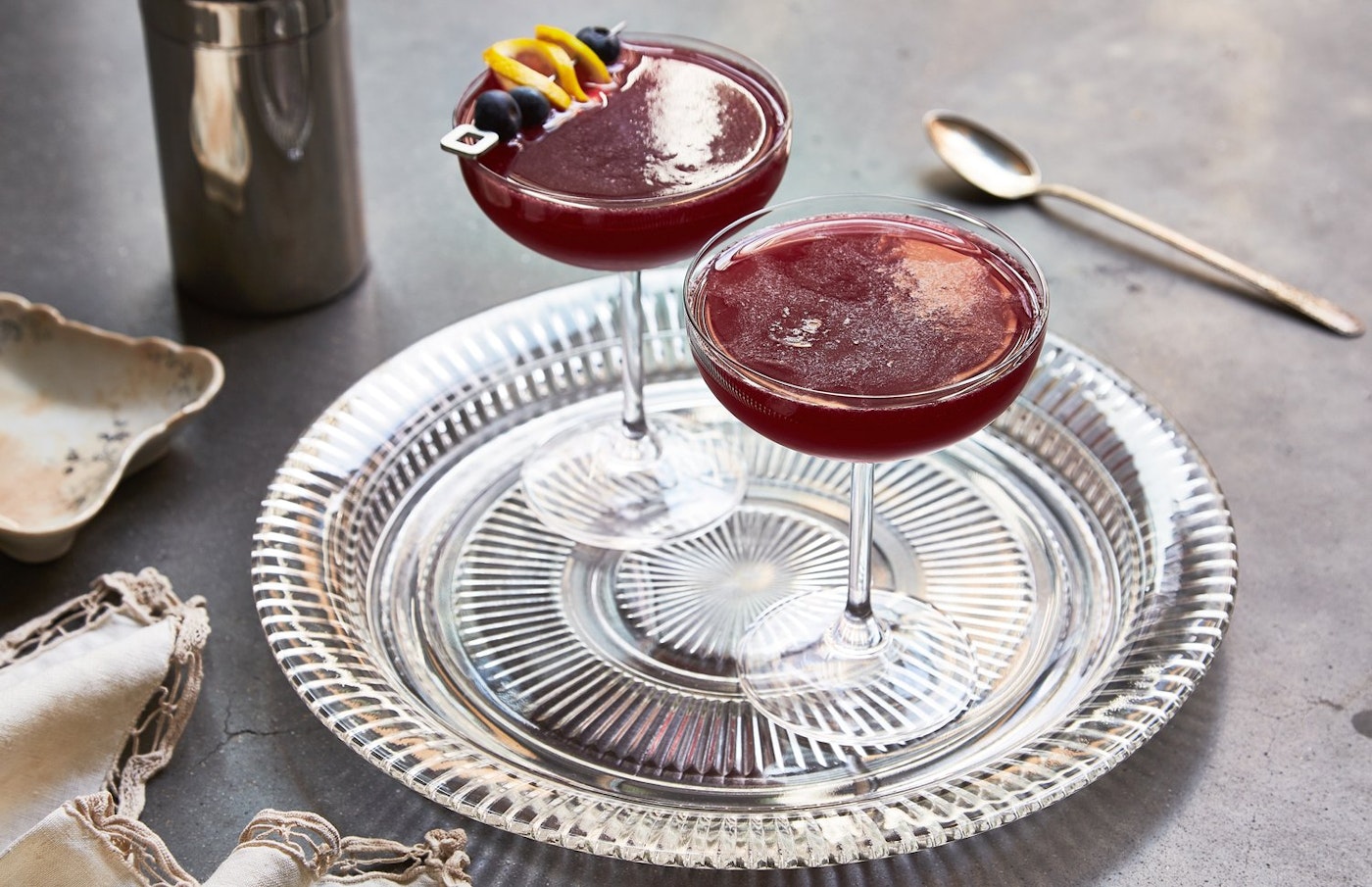Shared by Pamela Wiznitzer


“This is not a cocktail, this is a legacy,” beverage consultant Pam Wiznitzer shared last spring. The drink of homemade blueberry syrup, rum, and lemon juice, “feels like a lot of my history wrapped up in a glass,” says Pam. The ingredients tell the story of her grandmother Rivka Wiznitzer’s journey from Romania to Panama and finally to the U.S.
Born in 1929 in Gura Humorului, Romania near the Ukrainian border, Rivka lived with her parents and brother in a three family home. There was no running water, but the family was comfortable and their life deeply Jewish. “Shabbos was very special, very special,” Rivka explained in the documentary “Names, Not Numbers.” Her mother baked challah on Fridays and her father would read bible stories aloud from an illustrated book. During the summers, she and her mother would make a liqueur with sugar and sour cherries or blueberries to enjoy throughout the year — even as a child Rivka was allowed to nibble on the cherries.
On October 10, 1941 a town crier came to their neighborhood, beating a drum to gather everyone. Jewish families were told they had two hours to report to the train station. Rivka remembers that it was just before Shabbat or a holiday because her mother was cooking a special meal. The family spent days on a train car before they arrived in Bessarabia, a region that straddles modern-day Moldova and Ukraine, where they were dispatched to empty homes. Written in blood on the walls were messages saying that people had died here, asking them to recite kaddish, the prayer for the dead.
Under the control of the Romanian government, they weren’t deported to death camps but many who were with them died of hunger or disease including Rivka’s mother who succumbed to typhus. “Because of my father, we survived,” she explained in the documentary, adding that she had to become an adult at the age of 12. In March 1944, the family was liberated by the Russian army, which drafted the remaining Jewish men. Determined to escape, her father found a man to help him cross a river and another to smuggle Rivka, her brother, and the woman who would become her stepmom past Russian forces under sacks of potatoes.
The family made it back to their house in Romania to find it had been infiltrated by the Russian army. “Seeing her life in shambles was painful,” Pam explains. Like many Jewish families, theirs decided to leave, first for Israel in 1950 and a year later for Panama. Here she married Abraham Wiznitzer, a Romanian Jew who had survived the war in Japan and moved to Panama for business. Rivka became fluent in Spanish, joined neighbors in carnival celebrations, learned to make fried plantains, and to enjoy Panamanian rum before the family moved again and finally settled in Chicago.
Growing up, Pam remembers Rivka, who she calls grandma Becca, making chicken soup, kasha, almond cookies, and fried plantains. “I never understood where that came from,” says Pam. As an adult she’s able to see her grandmother’s journey through those dishes. “She’s always kind of incorporated, based upon where she's lived, cuisines of that region into her repertoire,” Pam adds. Honoring that tradition, Pamela made the cocktail, which is a riff on a daiquiri, with a blueberry syrup that nods to the liqueur Rivka and her family used to make and rum in honor of her years in Panama.
Rivka, who turns 93 this year, now splits her time between Chicago and Miami, where Pam has been able to spend time with her recently, hearing the stories of her life. Pam continues to be struck by Rivka’s ability to forgive. “I asked her how and why, and she just puts her hands up and she says…. ‘Why live with anger when you don’t have to? There’s so much to accomplish and there’s so much to do.”
